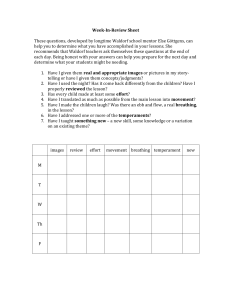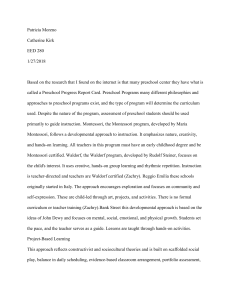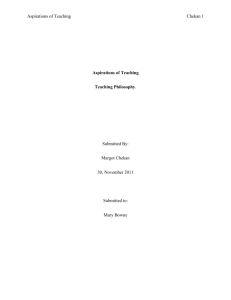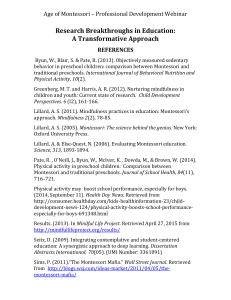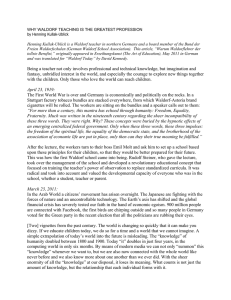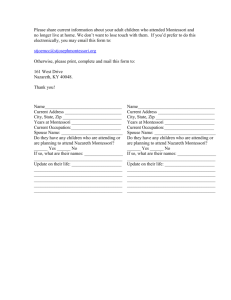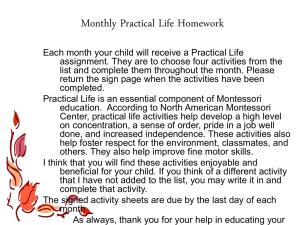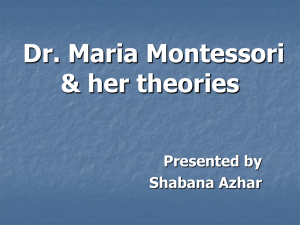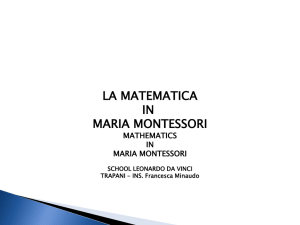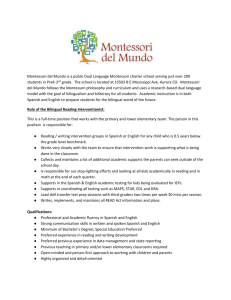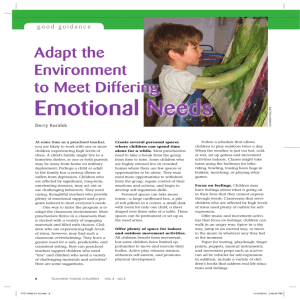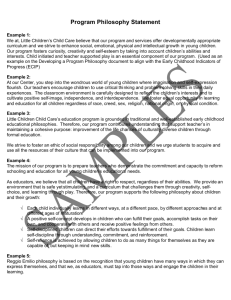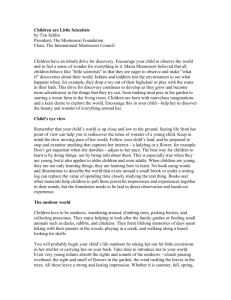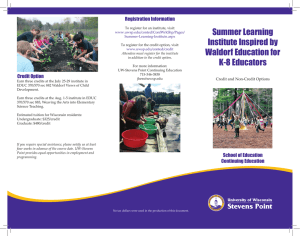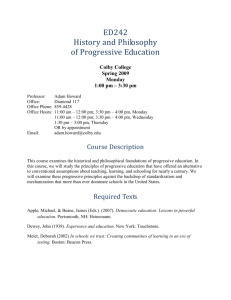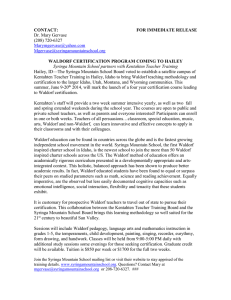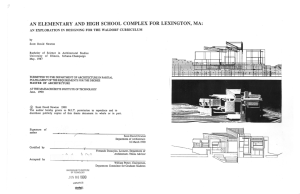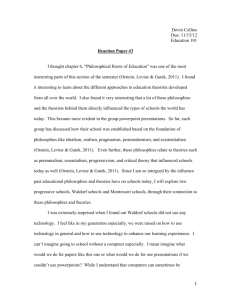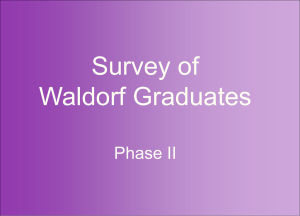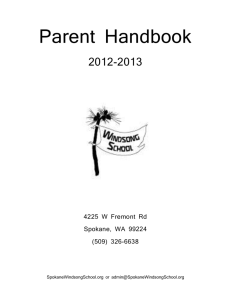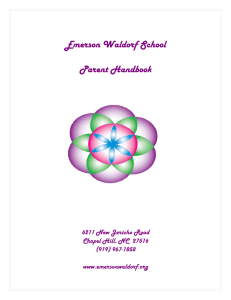Early Child Care and Education Philosophies
advertisement
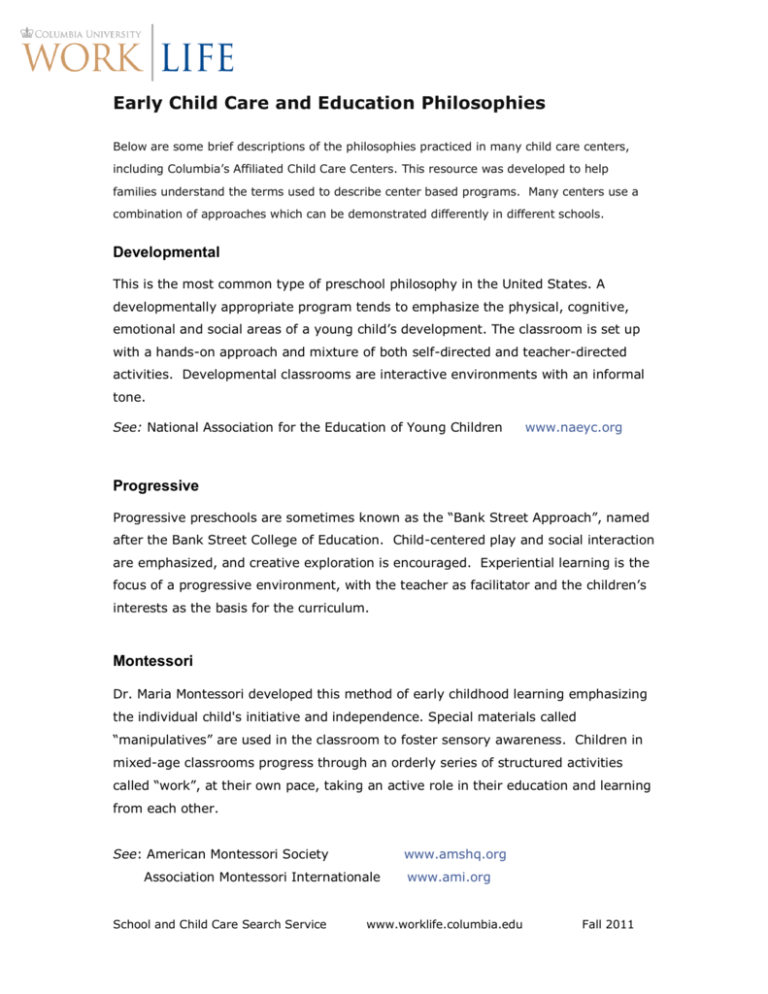
Early Child Care and Education Philosophies Below are some brief descriptions of the philosophies practiced in many child care centers, including Columbia’s Affiliated Child Care Centers. This resource was developed to help families understand the terms used to describe center based programs. Many centers use a combination of approaches which can be demonstrated differently in different schools. Developmental This is the most common type of preschool philosophy in the United States. A developmentally appropriate program tends to emphasize the physical, cognitive, emotional and social areas of a young child’s development. The classroom is set up with a hands-on approach and mixture of both self-directed and teacher-directed activities. Developmental classrooms are interactive environments with an informal tone. See: National Association for the Education of Young Children www.naeyc.org Progressive Progressive preschools are sometimes known as the “Bank Street Approach”, named after the Bank Street College of Education. Child-centered play and social interaction are emphasized, and creative exploration is encouraged. Experiential learning is the focus of a progressive environment, with the teacher as facilitator and the children’s interests as the basis for the curriculum. Montessori Dr. Maria Montessori developed this method of early childhood learning emphasizing the individual child's initiative and independence. Special materials called “manipulatives” are used in the classroom to foster sensory awareness. Children in mixed-age classrooms progress through an orderly series of structured activities called “work”, at their own pace, taking an active role in their education and learning from each other. See: American Montessori Society www.amshq.org Association Montessori Internationale School and Child Care Search Service www.ami.org www.worklife.columbia.edu Fall 2011 Reggio-Emilia Named for the region in Italy where it was started, this philosophy combines characteristics of developmental and Montessori programs with an emphasis on creativity and artistic expression and a conscious use of aesthetics in the classroom. Children's play and projects are documented in photographs and records of their own words, allowing teachers and parents to follow each student's progress and helping children to consider and revisit their work as meaningful. See: North American Reggio Emilia Alliance www.reggioalliance.org Waldorf Founded by Rudolf Steiner at the beginning of the 20th century, the Waldorf education comes from the view that the child develops through a number of basic stages as he/ she grows from childhood to adulthood. The methods used in Waldorf schools come from the view that the child is a being of body, soul and spirit. Waldorf education strives to develop in each child their innate talents and abilities through the use of curriculum which develops imagination and creativity. See: Association of Waldorf Schools of North America www.whywaldorfworks.org Cooperative Parent cooperative preschools, known as co-ops, integrate parents and caregivers within the classroom setting. Parents, teachers and preschool directors all work cooperatively to enhance a child's learning experience, and the parent participation can result in a reduced cost of enrollment and increased sense of community. Other approaches and program enhancements, including international, dual language, integrated, or programs for children with special needs can be found in many New York City child care and education programs. Please feel free to contact the Columbia University Office of Work/Life School and Child Care Search Service for more information about these programs. School and Child Care Search Service www.worklife.columbia.edu Fall 2011
